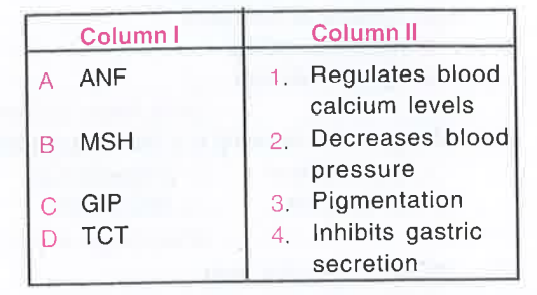Match the following column and select the correct option.
Column I Column II
Hardwood Duramen
Softwood Alburnum
Heartwood Non-porous wood
Sapwood Porous wood
a(i), b(ii), c(iii), d(iv)
a(i), b(iii), c(ii), d(iv)
a(iv), b(i), c(iii), d(ii)
a(iv), b(iii), c(i), d(ii)
The correct Answer is:C
To solve the matching question, we need to pair the terms in Column I with the correct descriptions in Column II. Let's go through each term step by step.
1. Hardwood:
- Hardwood is derived from angiosperms and is characterized by the presence of vessels. This type of wood is also known as porous wood because of these vessels.
- Match: Hardwood → Porous wood (Column II: Alburnum)
2. Softwood:
- Softwood comes from gymnosperms and lacks vessels, containing only tracheids and parenchyma. Due to the absence of vessels, softwood is referred to as non-porous wood.
- Match: Softwood → Non-porous wood (Column II: Duramen)
3. Heartwood:
- Heartwood is the central part of the tree, composed of dead cells. It is often referred to as duramen, which is the term for the inner, non-living part of the wood.
- Match: Heartwood → Duramen (Column II: Non-porous wood)
4. Sapwood:
- Sapwood is the outer, living layer of wood that is responsible for the transport of water and nutrients. It is also known as alburnum.
- Match: Sapwood → Alburnum (Column II: Porous wood)
Final Matches:
- Hardwood → Alburnum (Porous wood)
- Softwood → Non-porous wood
- Heartwood → Duramen
- Sapwood → Alburnum
Correct Option:
The correct option based on the matches is:
- A → Alburnum
- B → Non-porous wood
- C → Duramen
- D → Alburnum
- Hardwood is derived from angiosperms and is characterized by the presence of vessels. This type of wood is also known as porous wood because of these vessels.
- Match: Hardwood → Porous wood (Column II: Alburnum)
- Softwood comes from gymnosperms and lacks vessels, containing only tracheids and parenchyma. Due to the absence of vessels, softwood is referred to as non-porous wood.
- Match: Softwood → Non-porous wood (Column II: Duramen)
- Heartwood is the central part of the tree, composed of dead cells. It is often referred to as duramen, which is the term for the inner, non-living part of the wood.
- Match: Heartwood → Duramen (Column II: Non-porous wood)
- Sapwood is the outer, living layer of wood that is responsible for the transport of water and nutrients. It is also known as alburnum.
- Match: Sapwood → Alburnum (Column II: Porous wood)
- Hardwood → Alburnum (Porous wood)
- Softwood → Non-porous wood
- Heartwood → Duramen
- Sapwood → Alburnum
The correct option based on the matches is:
- A → Alburnum
- B → Non-porous wood
- C → Duramen
- D → Alburnum
Topper's Solved these Questions
Similar Questions
Knowledge Check
Match the column I with column II and choose the correct option
 A(a) ABCD1234B(b) ABCD4321C(c) ABCD1322D(d) ABCD2314
A(a) ABCD1234B(b) ABCD4321C(c) ABCD1322D(d) ABCD2314
Match the column-I with column-II and select the correct option :
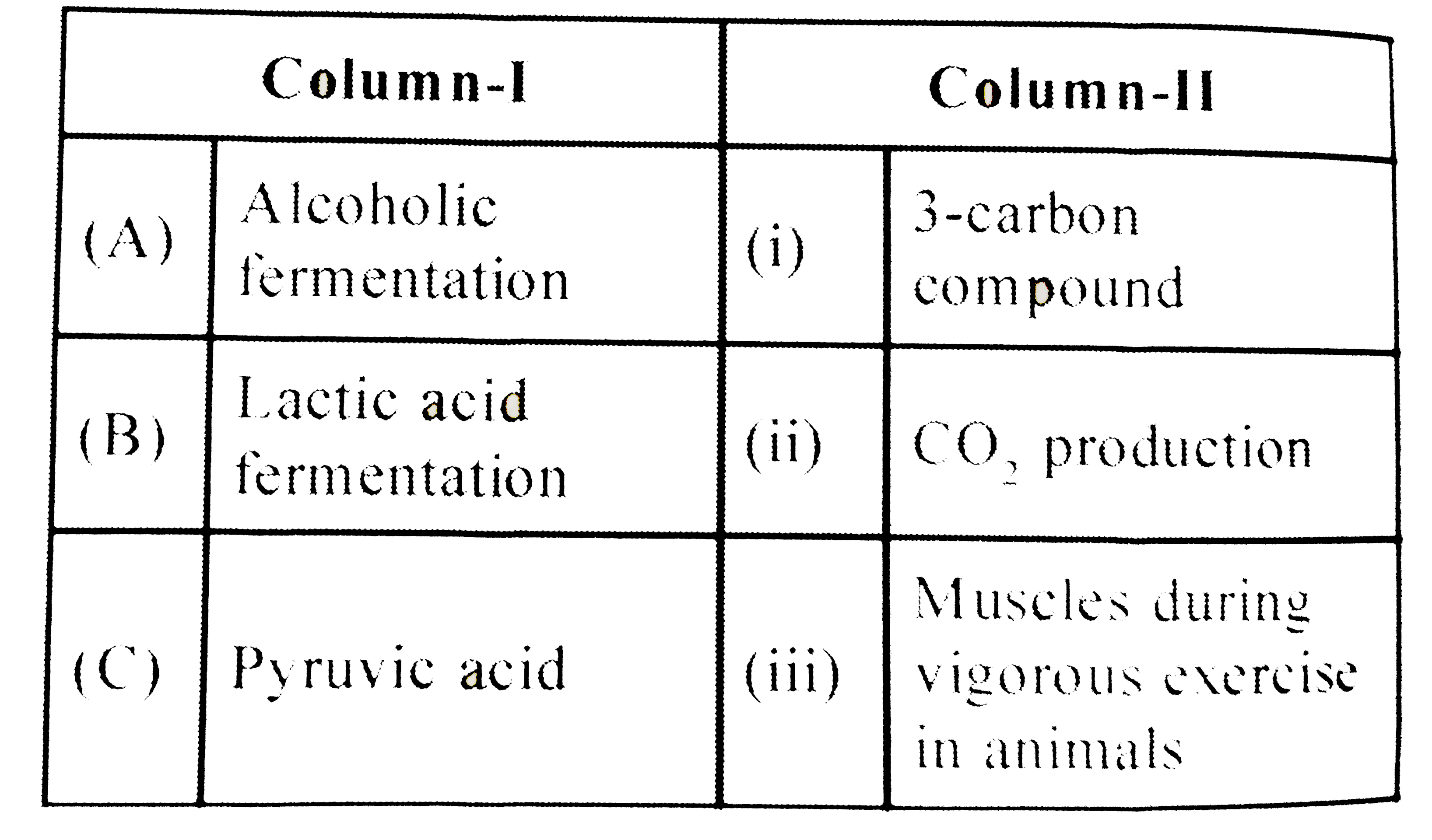
View SolutionMatch column I with column II and select the correct option.
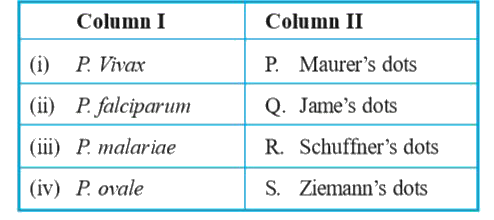
View SolutionMatch the column-I with column -II and select the correct option :
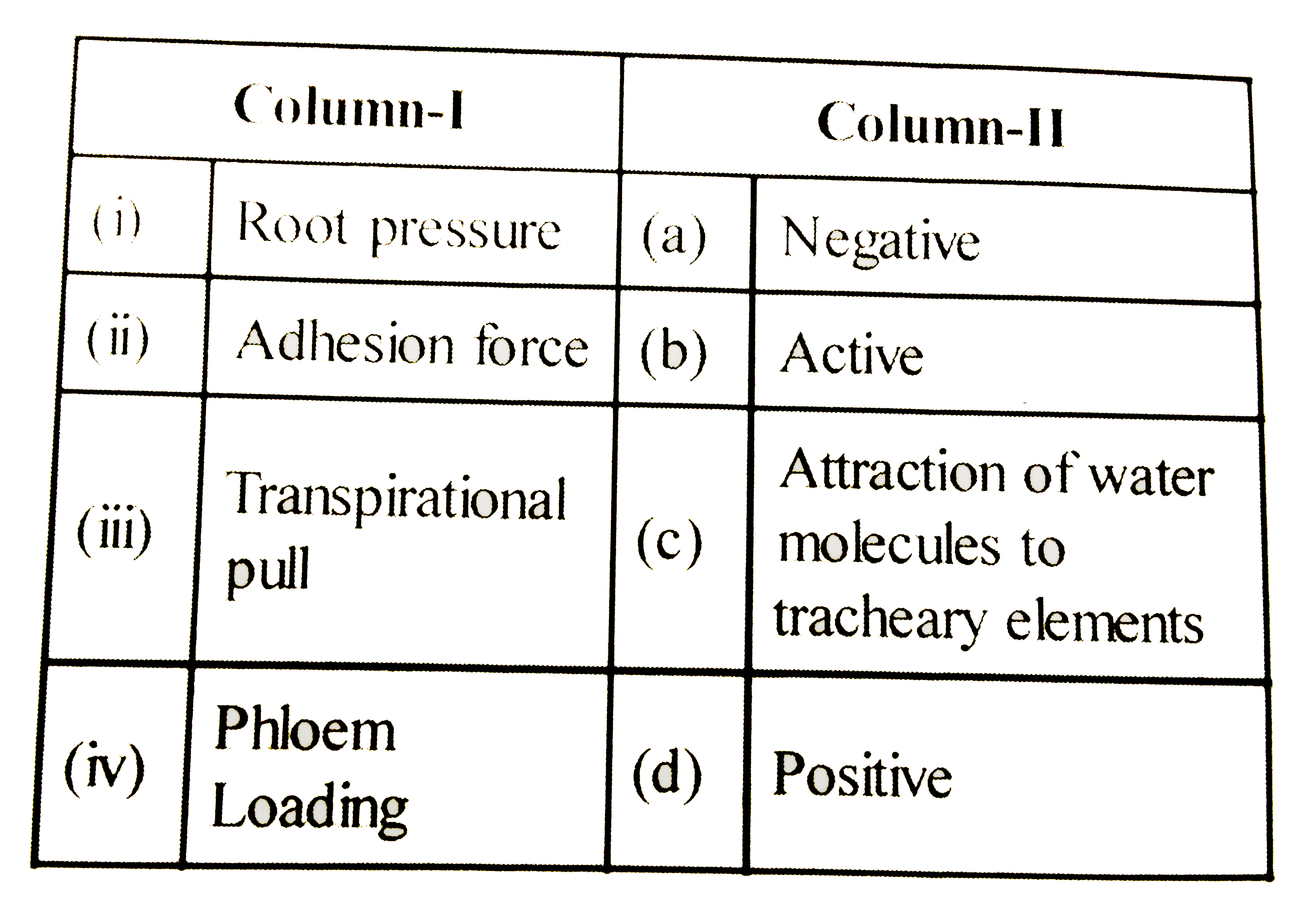
View SolutionMatch the column I,II,and III .Select the correct option :

View SolutionMatch column -I with column-II and select the correct option :-
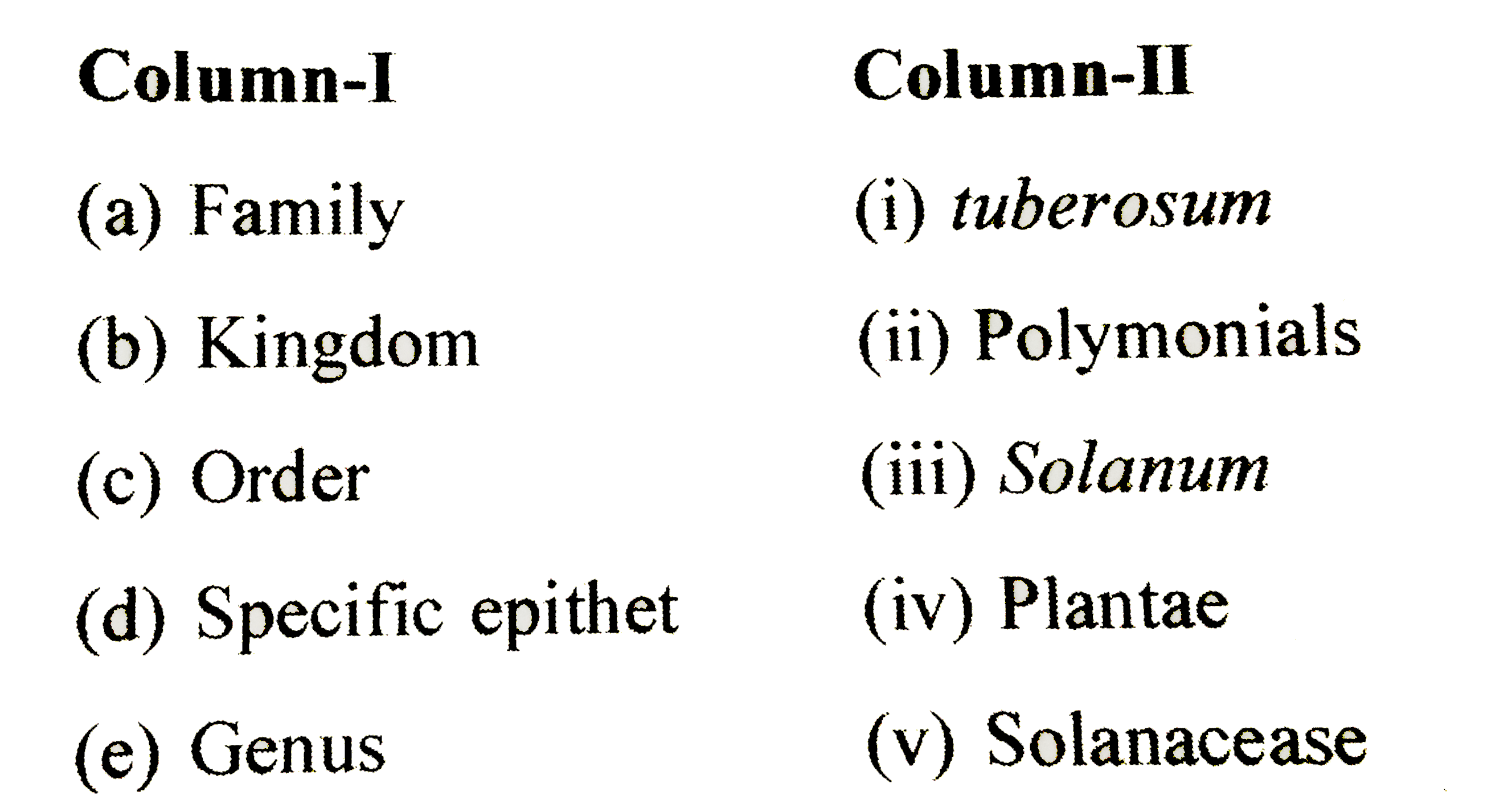
View SolutionMatch the column I with column II and choose the correct option
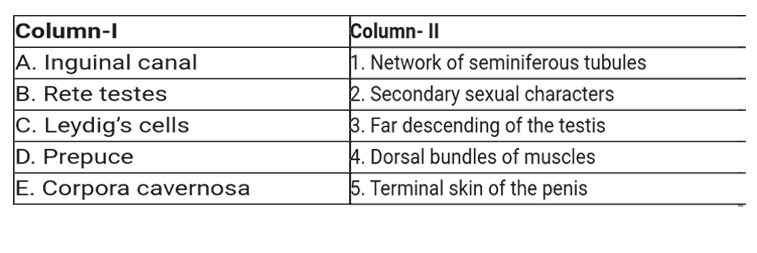
View SolutionMatch the column I with column II
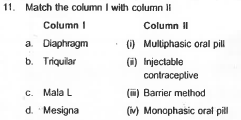
Choose the correct option.
View Solution
